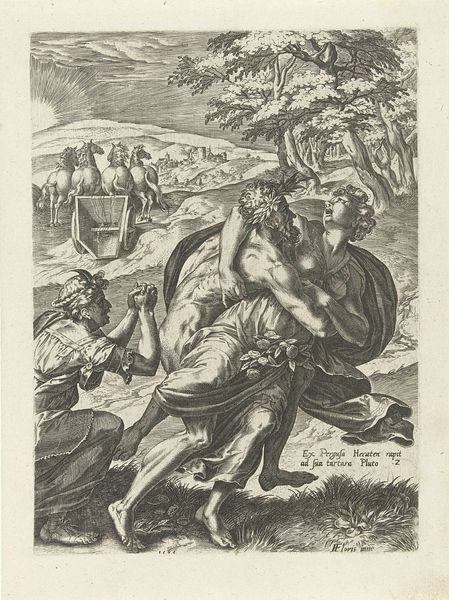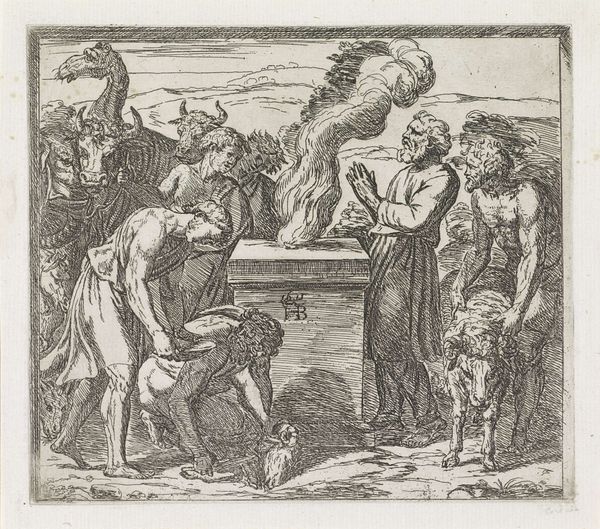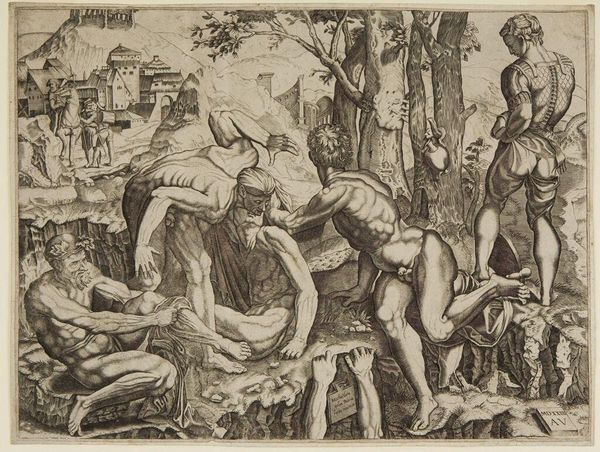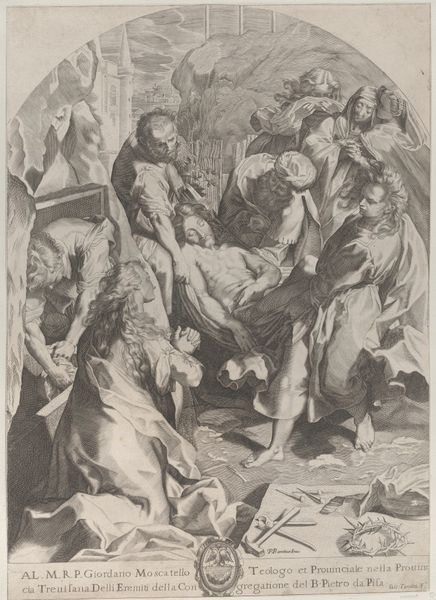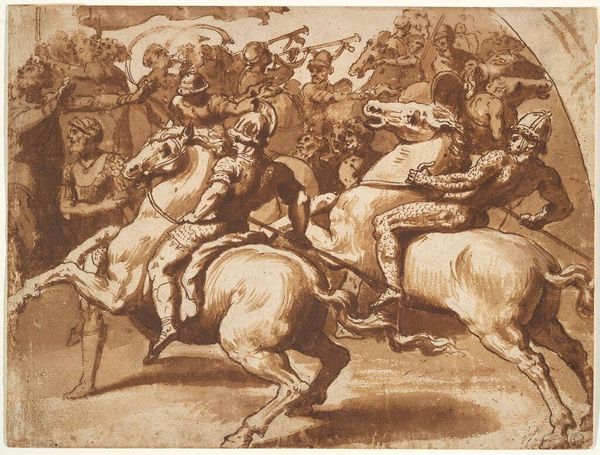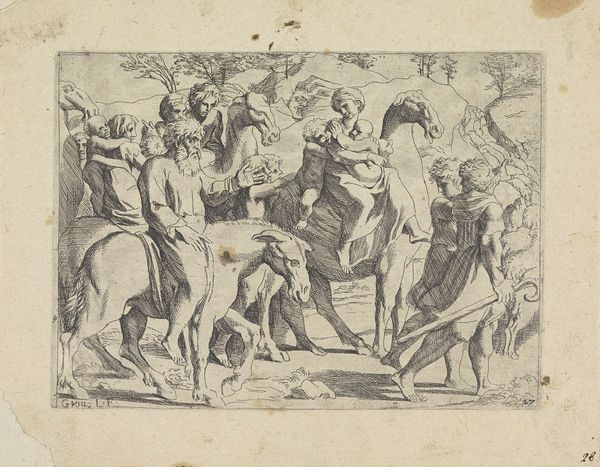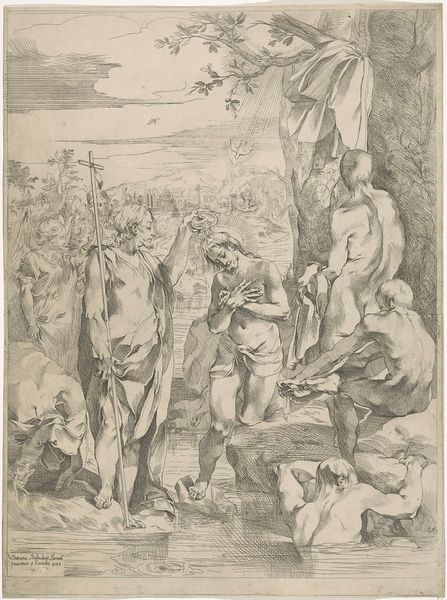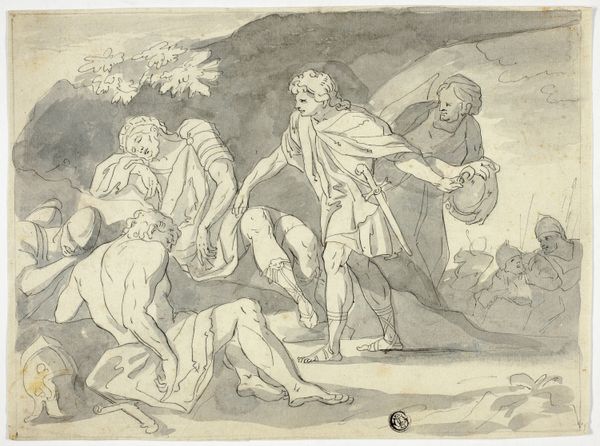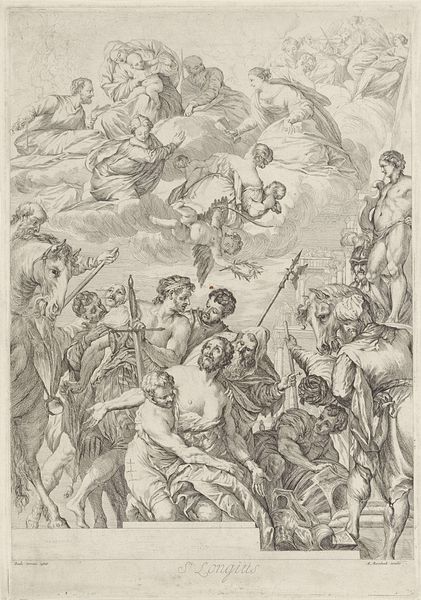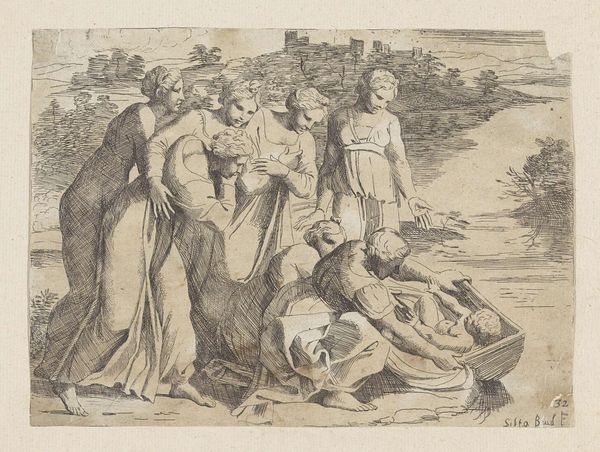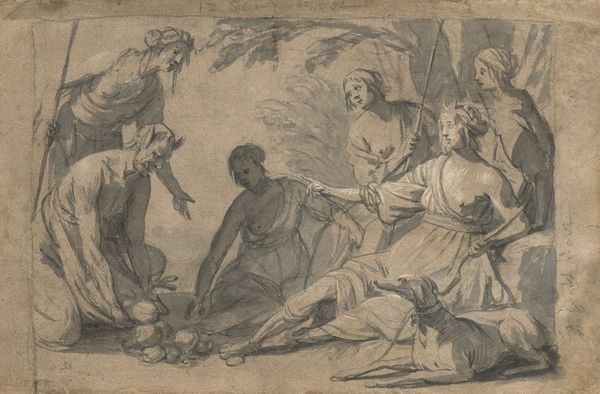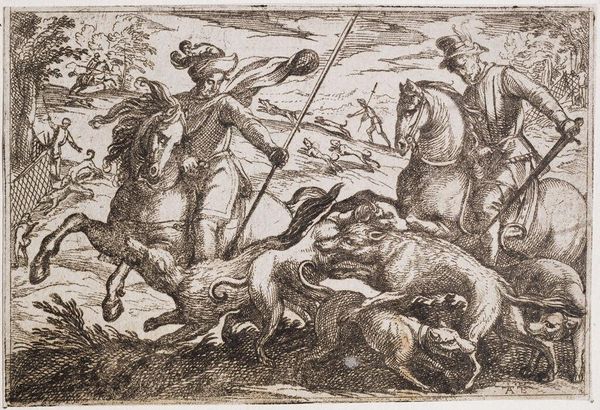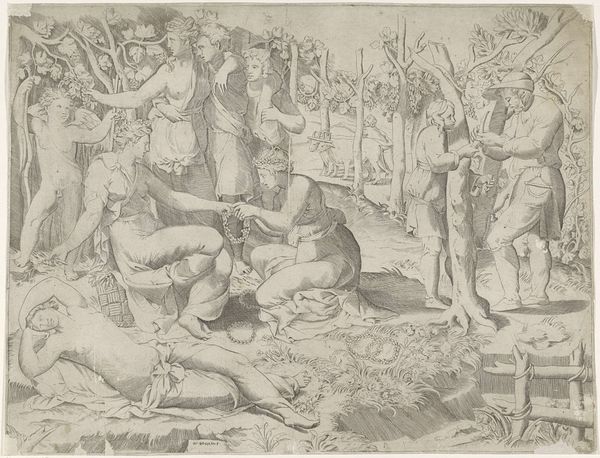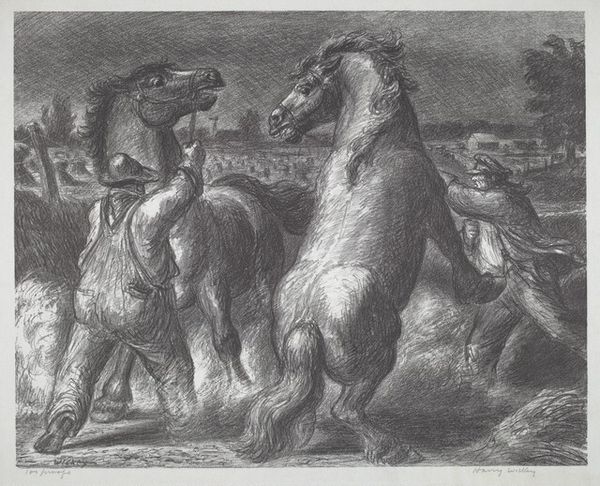
The Daughter of Jephtha 1860
0:00
0:00
edgardegas
Smith College Museum of Art (SCMA), Northampton, MA, US
#
gouache
#
acrylic
#
incomplete sketchy
#
painted
#
possibly oil pastel
#
oil painting
#
acrylic on canvas
#
underpainting
#
mythology
#
painting painterly
#
watercolor
Copyright: Public domain
Editor: So, this is Degas’s “The Daughter of Jephtha,” painted around 1860, it looks like in oil. There's an energy to it that feels both celebratory and vaguely unsettling. What do you see in this piece? Curator: I see a layered narrative steeped in patriarchal structures and the complexities of sacrifice. The biblical story of Jephtha, who vowed to sacrifice the first thing he saw upon his victorious return, which turned out to be his daughter, is a potent symbol of power dynamics. How do you think Degas engages with this fraught subject matter? Editor: I suppose it's there in the tension. It seems like the scene is charged but frozen. What strikes me is that some of the women are embracing near the center, almost as though the crowd knows what the viewer might not immediately realize is coming. Curator: Exactly. Think about the position of women, both then and potentially even now. Degas’s choice to depict this particular moment—a father’s vow, a daughter's impending doom celebrated as victory – allows us to examine the societal pressures and religious justifications used to control women’s bodies and destinies. Editor: It feels a bit subversive, then, this kind of… historical unearthing. Curator: Indeed. How does Degas's approach to color and composition either support or undermine the expected narrative of heroic triumph? Editor: I hadn't really thought of that. Maybe the sort of drab palette pushes against that "heroic triumph." Also, what looks like his incomplete technique, almost like a sketch, might mean something about how solid that power actually is, even today. Thanks for pointing that out! Curator: Absolutely. It’s by questioning the accepted narratives that we can start to engage critically with our present. Considering all we’ve discussed, this work is not only about historical sacrifice but the continuous re-enactment of these power dynamics across time. Editor: Definitely given me a lot to reflect on regarding Degas's intent and how the past can resonate so strongly today.
Comments
No comments
Be the first to comment and join the conversation on the ultimate creative platform.
